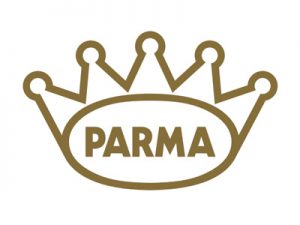News & Press | Consorzio del Prosciutto di Parma: a sustainability goal ahead for pre-sliced packs
News & Press | Consorzio del Prosciutto di Parma: a sustainability goal ahead for pre-sliced packs
Prosciutto di Parma takes up the ecological challenge and carries out research to identify more sustainable alternatives to the traditional packaging of the pre-sliced product.
Driven by consumption habits that have strengthened considerably during the pandemic period, in recent years sales of Parma in packs performed exceptionally well, and, despite the fact that consumers’ purchasing choices have privileged the deli-counter after the limitations imposed by Covid, in 2022 more than 90 million packs were sold in total in Italy and in foreign countries, a figure well above the one recorded in 2019.
Pre-sliced Parma Ham represents a purchasing solution to which the market continues to be particularly sensitive, thanks to its convenience and versatility of use, aspects that meet the habits of the modern consumer. The great success of the pre-sliced product in packs now poses a new challenge: reducing the environmental impact of packaging.
“The Parma Ham sector has always played a fundamental role for the social and economic resilience of the foothills and hilly area of the province of Parma, and this role must necessarily also include the environmental aspect, which is all the more important for a PDO such as ours, united by an inseparable bond with its territory of origin; the task of our Consortium must be to invest in research and coordinate the commitment and efforts of the companies in the sector in order to reduce the environmental impact of our production activities,” says Alessandro Utini, President of the Consortium.
And it is precisely with the aim of strengthening the environmental sustainability and circular economy of Parma Ham that the Consortium has carried out in-depth research in collaboration with the Experimental Station for the Parma Food Conservation Industry (SSICA), to test alternative and more sustainable materials than those traditionally used for packaging pre-sliced ham.
In this context, shelf-life tests were carried out with packaging from several sources and with different recycling methods, such as paper, recyclable PET and compostable bioplastics.
The use of these materials stems from the desire to guarantee a supply of raw materials of renewable origin that are sustainable for the planet, and from the need to foster every possible form of reuse or recovery of waste after consumption. The selected materials were combined in different types of packaging and used for packaging trials in a protective atmosphere with Parma hams from different producers and maturation periods ranging from 16 to 20 months.
“At the end of the monitoring period the packs underwent chemical-physical, sensory and microbiological analyses, with extremely significant results. We highlight the fact that packs consisting of paper tray and paper top (with or without transparent window), yielded even better preservation performance than traditional materials, also in terms of durability. Paper is therefore an excellent solution for the packaging of our pre-packed products, thanks to its recyclability, ease of reuse and origin from a renewable source,’ comments Alessandro Utini. But the other materials tested did not disappoint expectations either: the PET tray, with a shorter shelf-life than paper, is suitable for sale in transparent packaging, while the compostable bioplastic-based packages guarantee a shorter shelf-life, compatible with the ‘take away’ sales formula.
“The research, successfully completed by our Consortium, has the merit of having identified valid alternatives to traditional packaging and has provided manufacturing and packaging companies with important tools to support their already substantial commitment to sustainability. The transition to alternative and more sustainable materials, even in a macro-economic and production context that will require commitment and time to be fully implemented, is therefore not only desirable but finally possible,’ President Utini concludes.

